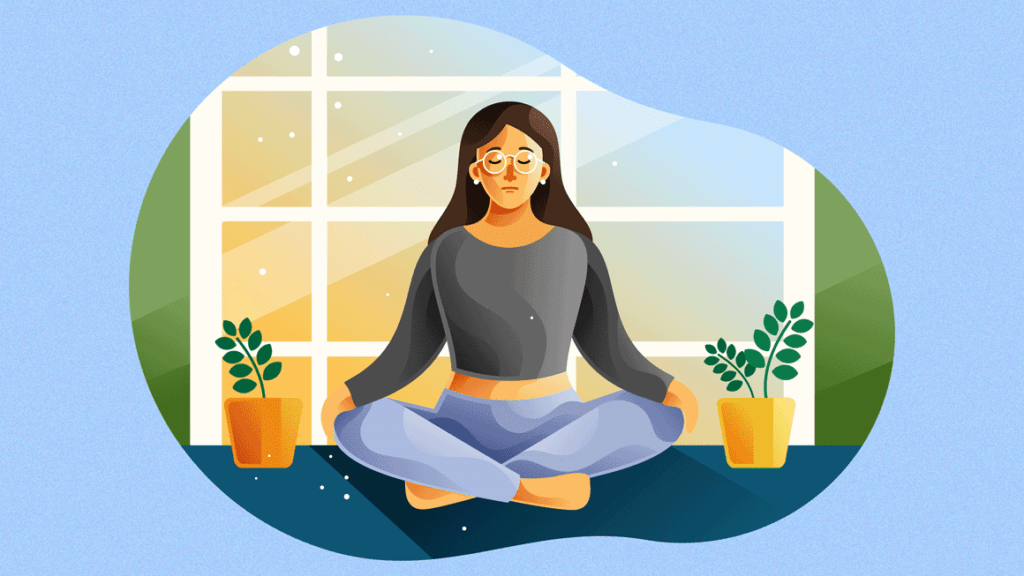
The Struggle is Real: Managing Your Mental Health as a DPT Student
Current-day DPT students are staring down a tsunami of stressful situations. Not only are you facing significant societal and professional challenges (e.g., DPT debt, social polarization, understaffed clinics, declining Medicare payments), you’re also navigating the process of becoming a licensed medical professional. The struggle is definitely real—and if you feel like you’re buckling under the stress of academic anxiety, know that:
- It is not shameful (in fact, it’s completely understandable!);
- You’re not alone; and
- It is possible to manage your mental health.
In this article, I hope to legitimize your struggles—and offer tips that can lighten your mental burden in either the short or long term.
Waning mental health is a serious concern for DPT students.
Before I dive into those mental health tips, I want to drive home the sweeping and serious nature of what’s happening to SPT mental health. Anxiety and depression in students (and the resulting poor academic performance) is heartbreakingly common.
According to the Spring 2022 National College Health Assessment Report from the ACHA:
- 52% of grad students self-reported moderate non-specific psychological distress;
- 17.2% of grad students self-reported serious non-specific psychological distress; and
- 20.8% of grad students turned up a positive suicidal screening.
And while there aren’t many studies about DPT students specifically, this dissertation states that, when compared to age-matched peers, “24.4% of DPT students scored above the average for depression, 32.8% for anxiety, and 36.2% for stress.”
In other words, if you’re an SPT who can’t seem to keep your head above water, know that you’re not alone; many of your classmates are right there with you.
Tip One: Know the signs of poor mental health.
If you clicked on this article because you’re not totally sure if you’re anxious or depressed (but you know you feel under the weather), take note. Anxiety, depression, and other mental health conditions have a slew of psycho- and physiological symptoms that can manifest in a variety of ways. But knowing the nature of the beast (i.e., which symptoms you’re experiencing and their severity) will give you the tools you need to reduce their harm.
Here is a compilation of some of the emotional, mental, physical, and habitual symptoms of poor mental health, sourced from the National Alliance on Mental Health, the CDC, and Mayo Clinic.
Emotional:
- Persistent feelings of sadness, anxiety, helplessness, hopelessness, anger, and fear
- Extreme mood swings (euphoric highs and cataclysmic lows)
- The desire to withdraw socially and isolate
- Prolonged or excessive irritability
- Hyper-vigilance
- Emotional dysregulation (experiencing disproportionately intense emotional reactions)
- Thoughts of self-harm or suicide
Mental:
- Brain fog (difficulty focusing, concentrating, and/or retaining information)
- Dissociation (spacing out, emotionally detaching from reality)
Physical:
- Exhaustion or persistent feelings of low energy
- Headaches
- General aches and pains
- Stomach problems
- Increase in nightmares
Habitual
- Difficulty completing regular tasks (e.g., chores, schoolwork, hygienic self-care)
- Changes in sleeping habits (sleeping too much or too little)
- Changes in appetite (eating significantly less or more)
- Increased reliance on and use of alcohol and drugs
If this sounds uncomfortably familiar, there’s a good chance you’re suffering from poor mental health—though you need to make an appointment with a licensed psychological therapist to get an official diagnosis.
Tip Two: Don’t shove your mental health under the rug.
Acknowledging and working on your mental health can be incredibly difficult. But this is one problem you don’t want to shove under the rug; it likely won’t get better on its own. Untreated mental illness “may get worse over time and cause serious problems”—so it’s best to seek relief sooner than later.
If you have hang ups over seeking treatment, remember that you deserve the same kindness you show others! Suffering from anxiety, depression, or any number of mental illnesses (especially in DPT school) is not a negative reflection of your personal worth. You deserve to feel better, and you deserve help.
Tip Three: Open up to your instructors and mentors.
Intimidating as it may be, opening up about your mental health to your instructors and mentors is a great move. They’re in a good position to help you seek what universities call “reasonable accommodations”—especially if your mental health is affecting your academic success. These accommodations will vary among universities and instructors, but sometimes they can look like:
- Flexible coursework deadlines,
- Additional tutoring,
- Flexible clinical hours,
- Additional test-taking time,
- Audio recording permissions (for lectures), or
- Additional excused absences.
What if my instructors don’t believe me?
Largely speaking, educators know that their students are grappling with poor mental health. According to this study published in the Journal of Clinical Education in Physical Therapy, 74% of instructors were aware that at least one of their students experienced “a mental health concern during a full-time clinical experience in the past 3 years.”
They know about this phenomenon, so it’s worthwhile to ask them for help. The worst they can do is say “no.”
Tip Four: Return to the self-care basics.
Self-care is critical to mental health management; it’s the act of caring for your physical, mental, emotional, and social wellbeing. I recognize the idea of self-care can feel a little overwhelming, especially when a $450 billion industry tells you that the fastest way to a healthy mind is by journaling daily or lighting up essential oil candles.
But when you’re grappling with debilitating depression or anxiety, those tasks can feel as unappealing as folding your towering laundry pile. That’s why I encourage you to ditch the spa days (for now) and start with the unglamorous and basic self-care that you need to function each day:
- Sleeping,
- Hydrating,
- Eating, and
- Washing (hygiene).
And don’t forget your mental and emotional self-care, which you can tend to by:
- Socializing with loved ones, and
- Making time for things that give you joy.
As your mental health fluctuates (which it may do throughout the school year), embellish the list when you have the mental and physical capacity to do so. In other words, if you’re having a good day, don’t just eat enough to sustain yourself—eat some fruits and veggies, or cook yourself a nice, big meal. On a good day, instead of only showering, shower and do a cleaning chore—or shower and get a massage.
Basic self-care won’t cure mental illness—but meeting your essential needs will help you tackle your daily and weekly challenges with more energy and a slightly clearer head.
Tip Five: Embrace shortcuts—especially if they get you to the same destination.
What do you do when you don’t have the energy to meet your basic self-care needs on top of everything else you need to do at school? Take shortcuts. Yes, I’m serious. If shortcuts get you to the same destination (e.g., you’ve eaten, or your dorm or apartment is less dirty), then they’re worth taking.
Can’t find the energy to wash the dishes? Just use paper plates and bowls for a while. Can’t find the motivation to cook dinner? Snack, or eat the components of a meal without putting them together. Order in, if you can afford it. Don’t want to bike to class? Ask a friend for a ride, or pay a few bucks to take the campus transport. Can’t stomach the idea of hitting the gym? Just walk around your block.
The idea is to take care of yourself for now, and worry about your methods later.
Tip Six: Try the little fixes.
This is going to be the most frustrating tip, but bear with me. You know those articles that recommend healthy eating and exercise to counter poor mental health? I know that they’re frustrating because eating broccoli and standing in the sun will not cure a mental illness—but there’s a reason people continue to make those suggestions. Those little actions can make a difference in your mood and energy levels—if a small one.
If you can, try some of the cliché little fixes:
- Spend 30 minutes outside.
- Exercise for 15–30 minutes (neighborhood walks count!).
- Cut down your digital time.
- Look into mindfulness meditation.
- Take a mental health day.
- Use a time-marked water bottle to keep yourself hydrated.
- Eat vitamin-rich food (e.g., fruits, veggies, fish, seeds).
- See your friends and family.
- Learn some grounding techniques.
Again, these will not fix your mental health problems—but they may help you tackle the week with more energy and a slightly clearer mind.
Tip Seven: Engage meaningfully with your friends, family, and community.
Healthy and meaningful social connections improve mental health; it’s a well-studied cause-and-effect relationship. So, if you’re struggling from poor mental health—no matter how badly you may want to isolate yourself—try very hard to reach out to your loved ones. Schedule dinner dates or homework sessions with your friends. Plan phone or video calls with your parents and siblings. Set aside energy for the people you trust and love! Social connectedness will help you.
And if you’re feeling energized but adrift, connect with your community instead. Volunteer at local non-profits—or join an active social justice club on campus. Contribute to your community—and you may find that you feel more fulfilled than you expected.
Tip Eight: Get professional help.
Of course, if you’re suffering (or suspect that you’re suffering) from any kind of mental illness, then I urge you to seek professional help. Going to therapy (and/or seeing a psychiatrist) helps in most cases—and those professionals are equipped to give you the tools and advice that you need to make it through the school year. Many college campuses offer free or inexpensive mental health care; please take advantage of those services!
Mental health management is not easy, especially when you’re already struggling. But you are capable of taking care of yourself—and it is possible to feel better! For now, just do what you can, and be kind to yourself! You deserve that.

